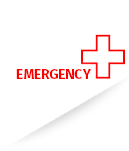The research group of 'Nosocomial Tracking' conducts various externally funded projects on improvements in hospital hygiene. Among other things, new methods are developed to decontaminate patient environments or medical tools more efficiently.
RobiClean
Cleaning of surgical robotic instruments for infection prevention
Project period: 01.07.2020-30.06.2023
For the reprocessing of robotic instruments, there are currently no recognized procedures or standards for evaluating the cleaning success. Due to the inappropriate design of these instruments (e.g., hard-to-reach areas, numerous joints, narrow lumens, inaccessible sealing surfaces, etc.), existing cleaning procedures and processes with limited effectiveness cannot adequately prevent the spread of nosocomial infections. The aim of the project is to integrate parallel (inline) contamination testing into the cleaning process of such instruments in order to optimize and verify the cleaning process. For this purpose, the necessary testing systems and standards for verifying the cleaning success will be developed.
Funded by the German Federal Ministry of Education and Research under grant number 13GW0433C.
3DecontaminAid
3D-supported automated decontamination of complex surfaces
Project period: 01.12.2020-30.11.2023
The aim of the project is to develop an autonomous robot that uses automated environment and object recognition to perform selective and surface-specific decontamination of relevant near-patient contact surfaces with high contact frequency (surfaces such as handles, switches, near-patient medical devices) using UV radiation.
The primary goal is to develop, in cooperation with the project partners, a prototype that is functional in a real environment, and in particular to achieve a technical realization of 3D space and object recognition that is suitable for everyday use, as well as sufficient disinfection performance using UV-C.
Collaborative partners: Fraunhofer Institute of Optics and Precision Engineering IOF, Leibniz Institute for Natural Product Research and Infection Biology, MatraLabs GmbH, GITTA mbH, Leistungselektronik Jena GmbH
Funded by the German Federal Ministry of Education and Research under grant no. 03COV09C.
ValEndUV
Validated reprocessing of thermolabile endoscopes (category semi-critical A) with UV-LEDs
Project period: 01.05.2020-30.06.2023
The project aims to develop a technical solution for UVC-LED-based disinfection of MP in order to make their reprocessing more efficient, cost-effective and, in particular, clearly validable. For this purpose, exemplary solutions will be developed for the three frequently used MPs, namely rigid oto-/sinuscopes, transesophageal echocardiography probes [TEE probes] and video laryngoscopes, hereinafter referred to as focus MPs. These are inserted orally or nasally and are therefore contaminated with pathogenic germs after use. These germs must be verifiably eliminated before use on the subsequent patient. The project is focused on the disinfection of devices that do not have an internal lumen and an irrigation or instrumentation channel, which would also need to be reprocessed. The project represents an extension of the consortium's activities in the field of disinfection using UVC LEDs with wavelengths around 265 nm, at which the highest microbiological disinfection efficacy is achieved. In this respect, it also reflects the technical progress in other fields of work of the consortium. Previously, these were limited to water and air disinfection. The field of medicine has so far concentrated mainly on applications in dermatology, but disinfection plays a central role in almost all clinical areas. The project aims to close this gap. By involving the manufacturer of medical products, SAVUNA GmbH, a development suitable for production and approval is to be ensured and at the same time the subsequent utilization is to be prepared. The LEDs for the project are to be sourced as far as possible within the consortium.
Partners: Fraunhofer Institute of Optronics, System Technologies and Image Exploitation IOSB, Institute of Applied System Technologies AST Ilmenau, CiS Research Institute for Microsensors Erfurt, SAVUNA GmbH Augsburg
Funded by the Federal Ministry of Education and Research under grant no. 03ZZ0147C.


